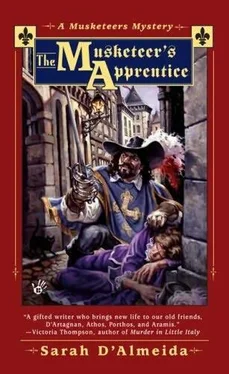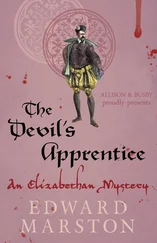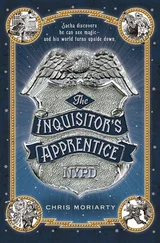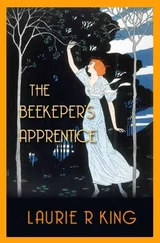Sarah D'Almeida - The Musketeer's Apprentice
Здесь есть возможность читать онлайн «Sarah D'Almeida - The Musketeer's Apprentice» весь текст электронной книги совершенно бесплатно (целиком полную версию без сокращений). В некоторых случаях можно слушать аудио, скачать через торрент в формате fb2 и присутствует краткое содержание. Жанр: Триллер, на английском языке. Описание произведения, (предисловие) а так же отзывы посетителей доступны на портале библиотеки ЛибКат.
- Название:The Musketeer's Apprentice
- Автор:
- Жанр:
- Год:неизвестен
- ISBN:нет данных
- Рейтинг книги:4 / 5. Голосов: 1
-
Избранное:Добавить в избранное
- Отзывы:
-
Ваша оценка:
- 80
- 1
- 2
- 3
- 4
- 5
The Musketeer's Apprentice: краткое содержание, описание и аннотация
Предлагаем к чтению аннотацию, описание, краткое содержание или предисловие (зависит от того, что написал сам автор книги «The Musketeer's Apprentice»). Если вы не нашли необходимую информацию о книге — напишите в комментариях, мы постараемся отыскать её.
In a search for his apprentice's killer, Musketeer Porthos rallies his friends to discover who was responsible, pursuing the truth even as he puts his own life in danger.
The Musketeer's Apprentice — читать онлайн бесплатно полную книгу (весь текст) целиком
Ниже представлен текст книги, разбитый по страницам. Система сохранения места последней прочитанной страницы, позволяет с удобством читать онлайн бесплатно книгу «The Musketeer's Apprentice», без необходимости каждый раз заново искать на чём Вы остановились. Поставьте закладку, и сможете в любой момент перейти на страницу, на которой закончили чтение.
Интервал:
Закладка:
“Not half,” Athos said smiling.
The gentleman opened his mouth, and it looked for a moment as though he would say that surely Athos was a nobleman in disguise, but then he seemed to think better of it, and shrugged. “Well… It matters not. For some people the birth is evident in feature and movement.”
Athos wondered if that was true. He very much suspected what was evident in him, other than a certain beauty of feature and form, which he knew he had inherited from the Countess his mother, was his father’s excellent and relentless training.
At any rate, his host was disposed to wave this away and deal as though with equals. “You meant to speak to me of…?” He prompted.
Athos nodded, even as he studied exactly what to speak to the gentleman of. “There was a boy, sometime back,” he said at last, speaking slowly as he weighed the best way to phrase it all. “A child of about eleven, with auburn hair, who might have sought employment with you?”
Monsieur de Comeau looked at Athos a long time, his eyes seeming to look inward. Not a guilty expression, nor exactly a puzzled one, more the look of someone who is listening to another person speak in a foreign language and can’t make heads or tails of it. At last, the fine dark eyebrows drew together and he said, “I beg your pardon?”
Athos sighed. “I’m putting it very badly,” he said. “I know. But I don’t know how else to put it. I’m not in the habit, commonly, of questioning noblemen about their private life or their private decisions, or even the street urchins who might have pestered them.” The gentleman frowned as though not sure what Athos might mean by that, and Athos continued. “There is this boy who came to my friend Porthos, some time ago, and begged him to teach him fencing. He presented himself as a young man of birth, but we have reason to believe that he was a mere plebeian. He lived-and indeed was born at the Hangman-”
At the name of the inn, Monsieur de Comeau’s expression changed, shifting so fast through various changes from astonishment to shock, to surprise, to… anger? At the back of it all there was something else, something in his eyes. It was a familiar expression, but one that Athos was hard put to place.
“Ah,” the gentleman said and leaned back in his chair as though to appraise Athos from a long distance. “Ah. Guillaume. ”
Athos nodded. “I see you know him?”
“Know him?” the gentleman asked. “I have often been tempted to strangle him with my bare hands.”
Athos was conscious of inhaling sharply before he could stop himself, and he saw the gentleman look surprised at this, then shrug. “My dear sir, I don’t mean that literally. Surely… But Guillaume needs at least a very sound thrashing.”
“If you pardon my asking, why?”
The gentleman shook his head and opened his mouth, but at that moment his servants came in with wine and bread, a plate of cheese, and a bowl of butter. While they disposed it on the table, the two men held their tongues.
Once their cups were filled and bread broken, and the servants had left, they resumed talking.
“Guillaume,” the gentleman said, pronouncing the name as if it tasted wrong to his tongue. “Guillaume is… Well… I suppose no better could be expected of him, growing up as he did at the back of a tavern and with a… well… a common slut for a mother, but…”
“His mother was… a bawd?” Athos asked.
Monsieur de Comeau shrugged. He took a sip of his wine. “Oh, mind you, I don’t know if she charged, save, of course that her admirers were likely to give her gifts, but she was known not to be too attached to her virtue. She would drink a little and she would… well, give in to the advances of whoever…”
Athos’s eyes had grown big, and he said, “I can’t ask if-”
“Oh, of course man. Not… Not in the last seven years, since I’ve been married. But before? Yes, of course. I was… in Paris, alone. That was when I used to frequent the tavern and I daresay Pigeon made herself agreeable half a dozen times.” He frowned. “That’s how the boy knew me, and that is, I fancy, how he came to me. But how come you-” He tore a piece off the bread and favored Athos with an evaluating once-over. “A man of quality, to concern yourself in the brat’s affairs?”
“My friend was teaching him fencing,” Athos said, conscious of how little explanation that was, in fact. “And he has disappeared.”
“Oh, depend upon it, he has cast about for another father.”
Athos, in the middle of swallowing a mouthful of wine was surprised enough by this to stare. “Another father?”
The man nodded. “He’d got it into his head that I was his father. How, I don’t know, since even the tavern keeper tells everyone that when she arrived in Paris, and at his establishment, she was already big with Guillaume. But he was convinced of it, or at least pretended to be.” He took a broad bite of the bread and shook his head. “It is quite possible that he simply feigned this belief because I was the most noble of his mother’s clients and he knew so.”
“And what did he wish of you?” Athos asked. “Not… recognition?”
The man shook his head. “Not… as such. Guillaume is not deluded. He is a sharp boy, actually, is our Guillaume. What he wanted of me was an allowance, or, as he put it, enough money to go on with, so he could set up as a young gentleman in town, after which-he assured me magnanimously-he would make his own way in the world.”
Athos listened, astonished both at the daring of the boy and the casual way in which the man told him this.
“And you?” Athos asked. “If you pardon my asking, how did you react to such demands?”
The gentleman laughed, loudly. “Why, as anyone of sense would react. Well… and at that perhaps not, because I think most people of sense would be more outraged by it than I was. You see, the thing is, I nurtured a fondness for the rascal. Very bright boy, though the conditions of his birth perhaps not all that could be desired. I wanted to… I didn’t wish to quell his enterprising spirit completely, no more than I wished to pay, so that his false accusation should not be carried to my wife. And so…”
“And so…?”
“I had him thrashed and thrown out the yard.”
“And you haven’t seen him since?”
Monsieur de Comeau flashed a bright smile between bites of bread. “Oh, I’ve seen him. He’s come around again. He’s knowledgeable of horses and quite good with them, you know. Probably a result of having grown up in a stable. He’s come around now and then to help the grooms, but he has not bothered me. In fact, he takes care to stay as far away from me as possible.” He shrugged. “Someday he’ll grow out of his ridiculous pretensions and make a fine groom whom I’d be glad to hire.”
It was on Athos’s tongue to ask about the horses and the vast establishment, all out of proportion to the lodging and the perceived wealth of the owner. It was none of his concern, and truly he had no excuse for even thinking about it. Other people’s finances had nothing to do with Athos. He’d been taught that money was nothing next to nobility of birth and even now, he felt guilty thinking about it.
And yet, wouldn’t it be possible that a gentleman as fond of horse flesh as Monsieur de Comeau, and as yet having failed to achieve any particular royal sinecure, would have been paid to attract the child here or to poison him? By the Cardinal, or even by Monsieur Coquenard, the husband of Porthos’s mistress?
Just because Monsieur Coquenard was old, it shouldn’t be supposed he was deaf, dumb and blind. And he certainly had cunning and money. In many ways, in fact, this plot bespoke more of him than the Cardinal who would have more ways in which to ensnare Porthos-and would probably target Aramis and not Porthos for his wrath. But Monsieur Coquenard…
Читать дальшеИнтервал:
Закладка:
Похожие книги на «The Musketeer's Apprentice»
Представляем Вашему вниманию похожие книги на «The Musketeer's Apprentice» списком для выбора. Мы отобрали схожую по названию и смыслу литературу в надежде предоставить читателям больше вариантов отыскать новые, интересные, ещё непрочитанные произведения.
Обсуждение, отзывы о книге «The Musketeer's Apprentice» и просто собственные мнения читателей. Оставьте ваши комментарии, напишите, что Вы думаете о произведении, его смысле или главных героях. Укажите что конкретно понравилось, а что нет, и почему Вы так считаете.










